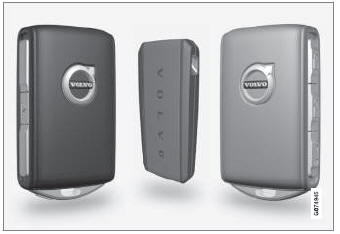Volvo XC90: Starting and driving / Braking assist after a collision
In a collision in which the activation level is reached for the pyrotechnic seat belt tensioners or airbags, or if a collision with a large animal is detected, the vehicle's brakes will be automatically activated. This function is intended to help prevent or reduce the effects of any subsequent collision.
After a serious collision, it may no longer be possible to control and steer the vehicle. In order to avoid or mitigate a possible further collision with a vehicle or an object in the vehicle's path, the brake assist system is activated automatically to help stop the vehicle safely.
If braking is not appropriate, e.g. if there is a risk of being hit by passing traffic, the driver can override the system by depressing the accelerator pedal.
This function assumes that the brake system is intact after a collision.
 Hill Start Assist
Hill Start Assist
The function for assisting when starting the vehicle on inclines (HSA1)
helps prevent the vehicle from rolling backward when starting on an uphill gradient...
 Regenerative braking
Regenerative braking
The vehicle recovers kinetic energy during braking in order to reduce fuel
consumption and emissions.
The battery symbol is shown in
the instrument panel when the vehicle is generating power for the battery1...
Other information:
Volvo XC90 2015-2026 Owners Manual: Customer Privacy Policy
Volvo respects and safeguards the personal privacy of everyone who visits our websites. This policy refers to the handling of customer data and personal information. The purpose is to give current, past and potential customers a general understanding of: The circumstances in which we collect and process your personal data...
Volvo XC90 2015-2026 Owners Manual: Changing settings in the center display's Top view
You can change settings and information for many of the vehicle's functions via the center display. Open Top view by tapping the tab at the top of the screen or by dragging/swiping from the top of the screen downward. Tap Settings to open the Settings menu...

